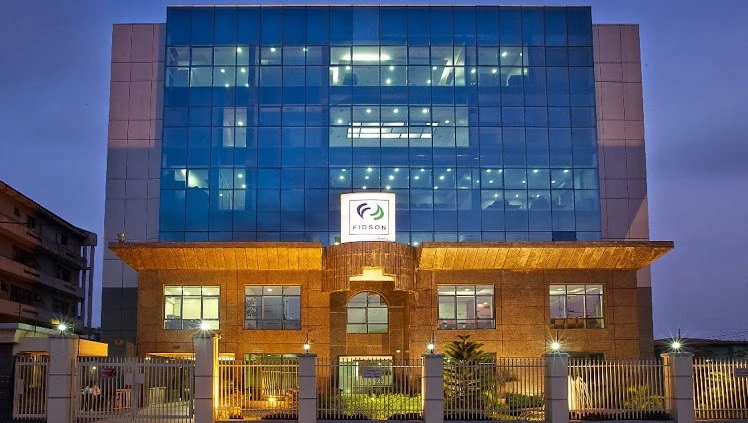*Says power is temporary trust from God
*Hints he warned Wike he’d lose his job if his devt initiatives are tilted toward helping PDP
*Atiku, govs, others greet Muslims at Eid
Deji Elumoye, Chuks Okocha, Michael Olugbode, Adedayo Akinwale, Linus Aleke in Abuja, Mary Nnah in Lagos, Yinka Kolawole in Osogbo, Laleye Dipo in Minna, Onuminya Innocent in Sokoto, Ibrahim Oyewale in Lokoja, Hammed Shittu in Ilorin and Segun Awofadeji in Gombe, Ahmad Sorondinki in Kano and Adibe Emenyonu in Benin City
President Bola Tinubu, yesterday, reiterated his commitment to national unity and collective progress, declaring that nobody is bigger than Nigeria, including himself as the president of the country.
Tinubu spoke at different meetings to mark this year’s Eid-el-fitr.
He urged all Nigerians to embrace the spirit of Eid-el-Fitr by demonstrating greater love and compassion, particularly towards the vulnerable, and extending acts of charity to all.
Addressing newsmen on Sunday after the Eid-el-Fitr prayers marking the end of Ramadan, at the National Eid Prayer Ground, in Abuja, the president urged Nigerians not to return to the old and unacceptable paths, but to remain steadfast in practising the righteous virtues they had learned during Ramadan.
Receiving a delegation of Federal Capital Territory (FCT) residents, led by the FCT minister, Nyesom Wike, at State House, Abuja, the president hinted that he had long warned the minister not to tilt development in favour of his party, Peoples Democratic Party (PDP), else he would lose his job.
Tinubu emphasised that power was a temporary trust from God, which showed the importance of humility and service to the people.
He stated, “I’m just a custodian of your trust. It is only Almighty Allah that gives power. If I give it to you, you must use it in the righteous way. You must be humane. You must follow my teachings.”
Reflecting on the just-concluded Ramadan fasting and ongoing Lenten season, the president emphasised the virtues of discipline, tolerance, and shared responsibility in building a prosperous nation.
He said, “We started with prayers. We end with prayers. We committed ourselves with discipline and faithful supplication, learning the teachings of Allah. Such discipline instils understanding, sharing, and partaking in family values that bring us together as one family.”
Tinubu urged the FCT administration to ensure that the rapid infrastructure development being undertaken under the Wike leadership translated into political success for the ruling All Progressives Congress (APC) in the 2027 elections.
He reminded Wike that his position depended on ensuring the political dividends of his administration’s efforts were fully realised.
He stated, “I remember the day Nyesom Wike came to me and said, ‘Please, take us out of this problem of TSA so that I can do more work and achieve more.’ Then I said, ‘Okay, tell me what you’re about to do.’
“And he presented it. And I threw in my own political guide, would that give me any opportunity for my party to win the election in FCT?
“I said, ‘I know where you are coming from, your own party or my party. If this thing goes too much in your own favour, you will lose your job.’ Then he said, ‘Okay, we settle that, Oga.”
The president praised Wike for his transformational leadership in the FCT, acknowledging his efforts in infrastructure development, civil service reforms, and urban renewal projects.
“I must thank the Minister of the FCT. When we started, he came up with a lot of good ideas to liberate the bureaucracy and bring forward-looking, progressive-thinking to the administration,” Tinubu said
He specifically highlighted Wike’s role in resolving long-standing issues relating to property rights, revitalising abandoned projects, and improving public services, such as healthcare and education.
He said, “The health centres are being rehabilitated. The health facilities of the residents of the FCT are being upgraded. Our teachers and schools are being rehabilitated, and buildings are furnished. Thank you, Wike.”
Tinubu urged Nigerians to prioritise national unity over personal ambitions, calling on citizens to embrace peace, harmony, and inclusivity regardless of ethnic or religious differences.
He declared, “We must continue to abide by the lessons of Ramadan. We must continue to share and remember the less privileged, the widows, and the have-nots, believing that we can share both in joy and in times of need. And we can believe that Nigeria is greater than any one of us – including myself as President.”
The president also highlighted Wike’s ability to work effectively in the heart of northern Nigeria, despite being from the south, calling it a testament to the strength of Nigeria’s diversity.
He said, “Surprisingly, Nyesom Wike is not from the north. He’s from the southern part of Nigeria. And his ability to work in the centre of the northern part of Nigeria is bearing fruit. That is a very good reflection of our diversity that we must use for our prosperity.”
At the Eid-el-Fitr prayers, marking the end of Ramadan at the National Eid Prayer Ground in Abuja, Tinubu urged Nigerians not to return to the old ways, but to remain steadfast in practising the righteous virtues they had learned during Ramadan.
He stated, “We should give thanks to the Almighty Allah. We saw the beginning; we started together and ended together in good health and happiness, in prayers for our country and all our people.
“We should continue the good deeds as taught during the Holy month of Ramadan: care for the vulnerable, the orphans and the less privileged. Everything that we have observed, we should not revert to the path that is not acceptable to the teachings of this month.”
Wike stated that removing the Federal Capital Territory Administration from the Treasury Single Account, establishing the FCT Civil Service Commission, creating two new Mandate Secretariats for Women and Youths, and appointing Permanent Secretaries had all bolstered FCTA’s governance structure and enhanced service delivery.
According to him, these reforms lead to a better quality of life for everyday residents.
Ahead of Tinubu’s second anniversary, Wike invited the president to the inauguration of projects completed in the past 12 months in the FCT.
He said, “As we approach the second anniversary of your administration, we are excited about the array of impactful projects that we have lined up for commissioning.
“These projects, designed to improve infrastructure, economic opportunities, and the overall quality of life, stand as evidence to your administration’s commitment to national development.
“We look forward to hosting Your Excellency in the FCT to witness first-hand the tangible progress that has been made under your leadership over the last 12 months.”
Wike pledged the administration’s “unwavering loyalty and support for the Renewed Hope Agenda” and promised to continue cooperating to ensure the success of the economic reforms of Tinubu.
Speaking with reporters after the visit, Wike expressed gratitude for the president’s recognition of his work.
Asked how he felt about being called “Mr. Infrastructure” by Tinubu, Wike said, “I feel very happy that my boss has confidence in me. If your boss, in public, says that you are doing well, that is an encouragement for you to continue doing the job you’ve been assigned.”
He assured FCT residents that his administration would continue to execute transformative projects, promising that the next phase of development would be even more ambitious.
“The committee is working, and you can be assured it can’t be less than what we did last time,” he stated.
Earlier, in his sermon, Chief Imam of National Mosque, Abuja, Dr. Abdulkadir Salman Sholagberu, who led the prayers, reiterated the need for Muslims to continue in the spirit of Ramadan, which included exhibiting a life of love, cooperation in righteousness, and care for the poor and the vulnerable.
Sholagberu stressed that it was imperative to continue in the life of worship, holiness, and obedience to Allah even after Ramadan.
He said, “You worshipped and followed His rules during Ramadan; you contained the Satan (temptations) within you, the Satan from outside, then after Ramadan, immediately, you go back to what you were, sinful servants.
“Allah says in the Quran: ‘Your example is like someone who was given paradise, then he got old, became helpless, feeble, weak and turned back against Allah’.
“If you do this, your servitude is like someone who had built for himself a mansion and, unfortunately, by his own hands, he pulled it down.
“We must continue to cooperate in righteousness. During the Fast, we showed love to one another; we cared for people in need, we extended charity, and our country was peaceful. Why should we return to rancour after Ramadan.”
Tinubu joined other Muslim faithful at the National Eid Prayer Ground along Airport Road in Abuja to observe Eid-el-Fitr prayers, marking the end of the holy month of Ramadan.
The president, who arrived the prayer ground before 9am, was warmly received by top government officials, religious leaders, and dignitaries, who gathered in large numbers for the solemn occasion.
They included Vice President Kashim Shettima; Deputy Senate President, Senator Barau Jibrin; and National Security Adviser (NSA), Mallam Nuhu Ribadu.
After the prayer session, Tinubu received Shettima and other top officials in Sallah homage at State House by noon.
Meanwhile, former Vice President Atiku Abubakar, governors and several other Nigerians also greeted the Muslim faithful at Eid-el-fitr.
Atiku: Leaders Must Show Compassion
Atiku congratulated Muslim faithful in Nigeria and around the world on the successful completion of the Ramadan fasting.
Atiku, in a statement by his media office, said the completion of Ramadan fasting was a blessing from the Almighty.
He admonished leaders at all levels to make the wellbeing of Nigerians a priority.
According to him, “the Ramadan fasting of this year came around at a period of excruciating hardship and hunger in the country.
“While the Ramadan season encouraged charity to the less privileged, it becomes imperative on leaders to make sure that after Ramadan, governments initiate interventions that will ensure the wellbeing and welfare of the people is sustained.
“It is important to call the attention of those in positions of authority to the practices of the Noble Prophet Muhammad (SAW) that teach about the obligations of leadership to the people.
“It is not enough that the government will ask that the people should brace themselves for harsh economic conditions. It is more sufficient for the leadership to show compassion on the masses and by acting with fear of God.”
PDP Urges Piety, Fear of God
Peoples Democratic Party (PDP), yesterday, congratulated the Muslim Ummah on the successful completion of the Holy Ramadan fasting.
PDP urged Nigerians to allow the divine lessons, virtues of love, unity, peace, patience, tolerance, restraint and total submission to the Will of the Almighty Allah, among other virtues imbibed during the period, to guide their daily dealings with one another.
In a statement by its National Publicity Secretary, Debo Ologunagba, PDP said, ”Our party urges Nigerians, especially those in leadership positions at all levels to re-dedicate themselves to the path of selfless service guided by love, truth, fairness, honesty and impartiality in all their activities and put away acts of corruption, arrogance, manipulation and insensitivity to the plight of the people.
”Indeed, the Eid-el-Fitr offers us as a nation and humanity the divine portal to redeem our nation by standing up for justice, strict adherence to the Rule of Law and accountability in the polity.”
PDP said it was deeply disturbed that while citizens of other countries celebrated Eid-el-Fitr in plenty, Nigerians were dampened in spirit due to the unbearable hardship occasioned by the misrule of the APC administration, which had worsened in the last two years.
According to PDP, ”Our party, however, charges Nigerians not to relent but continue to apply the lessons of Ramadan in recharging their resilience, focus and love for one another in the pursuit of a God-fearing, secure and prosperous nation that we once had under the PDP administration.”
Sanwo-Olu to Muslims: Uphold Ramadan Lessons
Lagos State Governor, Mr Babajide Sanwo-Olu, congratulated the Muslim faithful, particularly the Muslim Ummah in Lagos, as they joined the rest of the world to celebrate Eid-el-Fitri.
Sanwo-Olu urged Muslims to uphold the lessons of Ramadan and to continuously show love, compassion and care to the people, particularly the needy and downtrodden in the society.
In his Eid-el-Fitri message, issued by his Special Adviser on Media and Publicity, Mr Gboyega Akosile, Tinubu wished the Muslim Ummah more of Ramadan festivities in good health and prosperity.
He appealed to Muslim faithful to continue to offer prayers for continued peace, growth, development and stability in Lagos and Nigeria.
The governor urged Muslims in Lagos State and across Nigeria to continue on the path of spirituality and peaceful co-existence. He implored them not to depart from the lessons learnt during the holy month, especially on perseverance, tolerance and being of good behaviour to one another.
Yusuf Calls for Unity, Justice
Kano State Governor, Abba Yusuf, felicitated with Muslims in Kano and beyond on the occasion of Eid-Al-Fitr, and urged them to uphold the virtues of patience, compassion, and unity cultivated during the Ramadan fast.
In a statement issued by the governor’s spokesperson, Sunusi Tofa, Yusuf emphasised the importance of sustaining the spirit of sacrifice and selflessness. He encouraged citizens to support the less privileged and promote harmony in their communities.
Yusuf reassured the people of Kano of his administration’s commitment to improving living conditions, and ensuring economic growth, social welfare, and infrastructure development.
He stressed the need for peaceful coexistence among the ethnic and religious groups in the state, describing unity as Kano’s greatest strength.
Addressing the recent killing of Kano indigenes in Edo State, the governor expressed sorrow over the tragedy. He vowed that his government will not rest until the perpetrators were identified and brought to justice.
NSA, CDS, Service Chiefs, PSC, NPF Salute Muslims
National Security Adviser (NSA), Mallam Nuhu Ribadu, Chief of Defence Staff (CDS), General Christopher Musa, the service chiefs, the Police Service Commission (PSC), and Nigeria Police celebrated with Muslims on Eid-el-Fitr.
A statement personally signed by the NSA said their cooperation against threats to national security was necessary.
Ribadu stated, “On behalf of the management and staff of the Office of the National Security Adviser, I wish to extend heartfelt greetings to Muslims across Nigeria and around the world on the occasion of Eid-el-Fitr, marking the end of the holy month of Ramadan.
“This sacred period embodies the virtues of resilience, discipline, and sacrifice. As we celebrate, I urge you to bring these virtues to bear in our collective efforts to strengthen national security.
“Your cooperation in the fight against terrorism and other threats remains vital in ensuring peace and stability across our nation, particularly in our commitment to a ‘whole-of-government and whole-of-society approach.”
He stated that continued collaboration between the government, religious leaders, communities, and security agencies in combating terrorism and extremism remained paramount.
Ribadu said the celebration of Eid-el-Fitr served as a moment for deep reflection, gratitude, and a renewed commitment to peace and national unity.
Abbas, Ganduje Rejoice with Muslims
Speaker of the House of Representatives, Hon. Tajudeen Abbas, and National Chairman of All Progressives Congress (APC), Dr. Abdullahi Umar Ganduje, congratulated the Muslim Ummah on the occasion of Eid-el-Fitr.
Abbas, in a statement by his Special Adviser on Media and Publicity, Musa Krishi, urged the Islamic faithful to continue to imbibe the virtues of the Holy Month, which included piety, sacrifice, charity, and discipline among others.
Ganduje, on his part, rejoiced with all Muslims for the spiritual renewal and discipline attained during the sacred month of fasting, prayer, and devotion to Almighty Allah.
The chairman, in a statement by his Chief Press Secretary, Edwin Olofu, urged the faithful to uphold the virtues of piety, selflessness, and compassion that Ramadan represented, while also extending love and kindness to one another, especially the less privileged in society.
Ganduje said, “As Nigeria continues on its path of growth and development, the APC National Chairman calls on Muslims and all citizens to remain steadfast in promoting unity, peace, and national progress.
“He emphasises that the lessons of Ramadan—patience, sacrifice, and perseverance—are essential in fostering harmony and strengthening the nation’s democratic institutions.”
Idahosa Tasks Muslims on Peace
Edo State Deputy Governor, Mr. Dennis Idahosa, charged the Muslim faithful to imbibe the spirit of peaceful co-existence in accordance with the teachings of the holy month of Ramadan.
Idahosa’s charge was contained in his message to the Muslim faithful to commemorate the 2025 Eid-El-Fitr.
He commended the dedication of Muslims to fasting, prayer, and charitable causes, while reaffirming the Senator Monday Okpbebholo administration’s commitment to serving the people and working for a new Edo for all.
In the statement by his Chief Press Secretary, Friday Aghedo, the deputy governor said he remained optimistic that things would change for the better in the state and the country, in general, especially with the special prayers offered during the holy month by the Muslim faithful.
On the killings of some hunters in Uromi, Esan North East Local Government Area, Idahosa called for calm, and reassured the people that the state government would investigate the matter with a view to brining the perpetrators to book.
Niger Governor Seeks Sustained Peace
Niger State Governor, Mohammed Bago, called for sustained peace in the state as hundreds of Muslims thronged the Minna central prayer ground for eid-el-fitr.
Bago, in a message by his deputy, Comrade Yakubu Garba, called for sustained peace in the state to ensure rapid development.
He asked all the security agencies to continue to perform their duties with utmost diligence in order to make the state a destination for investors.
The governor urged wealthy individuals to assist the less privileged in the society and also advised the youth to be law-abiding and not use the period of celebration to cause chaos and unrest.
Adeleke Felicitates Muslims
Osun State Governor, Senator Ademola Adeleke, congratulated Muslim Ummah in the state and beyond on the successful completion of this year’s Ramadan.
Adeleke rejoiced with Muslim faithful on the observance of one of the pillars of Islam, charging them to sustain the culture of giving and selflessness that characterised the Holy month.
The governor enjoined Osun people to use the occasion of Eid-el-Fitr to pray for enduring peace and sustainable development in Osun State and Nigeria, as a whole.
He urged Muslims to use their respective “ground of prayers and homes to seek the face of Allah subhanawatahallah to frustrate renewed efforts of some selfish political actors to throw our state into chaos out of desperation to seize power through the backdoor”.
NUJ Sokoto Council Greets Muslims
Nigeria Union of Journalists (NUJ), Sokoto State Council, congratulated Muslims in Nigeria on the occasion of Eid-el-Fitr, marking the end of Ramadan, the holy month of fasting.
In a statement by the chairman, Muhammad Usman Binji, and secretary, Nasir Bello, the council extended special congratulations to Sokoto State Governor, Ahmed Aliyu; the Sultan of Sokoto, Muhammad Sa’ad Abubakar; and Senator Aliyu Wamakko.
NUJ urged Muslims to continue practising the lessons of Ramadan, including compassion, kindness, and selflessness.
Ododo Harps on Unity, Peace
Kogi State Governor, Usman Ododo, charged Muslim faithful to reflect on the lessons of the holy month Ramadan to foster unity and peace among the diverse ethnic groups in the state.
Ododo gave the charge yesterday at Muhammadu Buhari square in Lokoja, where he observed the two rakat prayers with his people to mark the end of Ramadan fast.
Ododo said, “My message to the people as they cerebrate Eid-el-fitir, is for them to continue to reflect on the lesson of compassion, lesson of peace and lesson of progress.”
‘Eid Celebration Brings Food, Joy’
In the spirit of Eid celebration, a remarkable act of kindness unfolded in the Ifo Local Government Area of Ogun State.
On Friday, Mr. Sudeep Ramnani and Mr. Jai Mahtani, international businessmen and foreign investors, partnered Pukka Logistics and Support Services Ltd to bring much-needed food items to the community.
The outreach, led Managing Director of Pukka Logistics and Support Services Ltd, Beulah Akingbelu-Banjo, was part of a larger mission to alleviate hunger and food poverty across Nigeria.
According to Beulah, the outreach has already reached thousands of Nigerians across several local government areas to date, and the mission is to reach out to the 774 local government areas in Nigeria, one local government at a time.
Tuggar Asks Nigerians to Embrace Peace, Compassion, Unity
Minister of Foreign Affairs, Ambassador Yusuf Tuggar, asked Nigerians to embrace of peace, compassion, and unity that the Eid al-Fitr festival, which marked the end of the month of Ramadan, represented.
Tuggar, in his message to commemorate the festival, said, “On this joyous occasion of Eid al-Fitr, I extend my warmest greetings to all Nigerians, both at home and abroad.
“As we mark the completion of the holy month of Ramadan, let us embrace the values of peace, compassion, and unity that this sacred period represents.
“Eid is a time of gratitude and reflection, a moment to strengthen our bonds as a nation and reaffirm our commitment to love, kindness, and generosity toward one another. It is also an opportunity to pray for continued progress, stability, and prosperity in our beloved country.
“To our fellow Nigerians living abroad, we recognise your contributions to our nation’s development and appreciate your role in fostering the good image of Nigeria globally. May this Eid bring you renewed hope, joy, and a deeper connection to home.”
AbdulRazaq, Saraki, Danladi-Salihu, Egbewole Pray for Country’s Unity, Peace
Kwara State Governor, Alhaji AbdulRahman AbdulRazaq joined Muslims across the world to felicitate the Muslim community in the state on the celebration of Eid-ul-fitr.
AbdulRazaq prayed to Allah to give every fasting believer the full rewards of the spiritual exertion in the month.
In a statement issued in Ilorin, the governor also joined the Emir of Ilorin, Alhaji Ibrahim Sulu-Gambari, and the entire Muslim community to thank Allah on the completion of Ramadan and the dawn of Shawwal, the 10th month, which ushers in the festivity.
He stated, “As we bid bye to the honoured month of Ramadan, I call on our brethren not to relent in all aspects of ibaadah (worship), in giving alms to the poor, or in refraining from actions and inactions that lessen our standing as believers or as good members of the human community.
“We ask Allaah to accept our supplications and prayers, purify our deeds, bless our families, state, and country, and give us the grace to dutifully observe many Ramadan fasts in the future.”
In his Eid-el-Fitr message, former Senate President, Dr. Abubakar Bukola Saraki, called for unity and peace of the country.
In a statement in Ilorin, Saraki said, “As we come to the end of the holy month of Ramadan, I join Muslims across Nigeria and the world to celebrate Eid al-Fitr.
“This Ramadan, like so many before it, has been a time of deep introspection, reminding us that true leadership is rooted in compassion, humility, and service.
“For me, Eid has always been a time to reflect on our spiritual journey, recommit to the values that unite us, and spend much-needed time with my loved ones.
“Guided by these values, now more than ever, let us pray to Almighty Allah to protect our courageous men and women on the frontlines.
“Let us also ask Him to provide for the millions of families across our nation who cannot celebrate this year’s Sallah with the usual festivities due to the rising cost of living.”
Speaker of the state House of Assembly, Hon. Yakubu Danladi-Salihu, also congratulated Kwarans and Nigerian Muslims on the successful completion of Ramadan 1446AH and the celebration of Eidul Fitr.
In a statement, Danladi-Salihu thanked Allah for the grace to complete the marathon fast and commended the Muslims for their steadfastness, praying for acceptance of all their acts of Ibaadah during the sacred month by the Supreme Being.
He stated, “It is important for us to sustain the lessons of love and kindness to others, charity and good neighbourliness, compassion and selflessness, forgiveness, and tolerance with one another learned during the sacred month.”
Vice Chancellor of University of Ilorin, Professor Wahab Egbewole, SAN, congratulated members of the institution’s Muslim community and the entire Muslim Ummah on this year’s Eid-el-Fitri festival.
In a statement by the University’s Director of Corporate Affairs, Mr. Kunle Akogun, the vice chancellor said the occasion called for celebration as it marked the successful conclusion of the fasting.
FFS Places Firefighters on Red Alert
Controller General of the Federal Fire Service (FFS), Abdulganiyu Jaji, said fire fighters had been placed on red alert to address any emergencies across the nation during the celebration.
Jaji also highlighted the need for the installation of onboard cameras on tankers and other articulated vehicles transporting flammable materials.
He said the precautionary measure was aimed at preventing accidents and ensuring public and infrastructural safety, especially during the high-traffic period of Eid celebrations, and called on relevant authorities and stakeholders to implement these safety features to reduce risks and enhance overall road and critical facility safety.
Jaji, in his message, extended heartfelt congratulations to the Muslim Ummah for successfully completing their Ramadan fast.
He explained that those safety measures were vital for preventing accidents involving fuel tankers, particularly given the risks associated with festive period travel.
Obi Congratulates Muslims
Presidential candidate of Labour Party (LP) in 2023, Peter Obi, prayed for Nigerian Muslims to allow the love and spirit of Ramadan to guide them.
Obi, in a message, said, “I sincerely join the Muslim faithful in Nigeria to celebrate the Eid-el-Fitr 2025, which marks the end of the Holy Month of Ramadan. It is our earnest prayer that Almighty Allah will accept our prayers, fasting, and supplications now and always.
“It was, indeed, very fulfilling for me to break the Ramadan fasts with different Muslim Communities across the nation. Sharing our blessings and joys with one another is not just an act of Ramadan but should form part of our everyday lives.
“We pray that the blessings and lessons of Ramadan will forever remain and abide with us – that love will live in our hearts, that peace and unity will flourish in our nation, that security of lives and property will again be celebrated within our borders, and that our nation will experience growth and development.
‘Once again, I congratulate our Muslim brothers and sisters for completing the Ramadan. May the blessings of Almighty Allah remain with you and your families now and always. Eid Mubarak!”
Inuwa Yahaya Harps on Unity, Peace
Gombe State Governor, Muhammadu Yahaya, emphasised the need for enduring unity, resilience, and a renewed commitment to building a society rooted in love, peace, and moral integrity.
In his goodwill message, Yahaya, who is also Chairman of the Northern States Governors’ Forum, urged the Muslim faithful to carry forward the spiritual lessons and values learned during the Ramadan into their daily lives.
In a press release by Director-General, Press Affairs, Ismaila Uba Misilli, Yahaya emphasised that the teachings of compassion, self-discipline, and devotion should be woven into every aspect of life for the betterment of the society.
The governor called on the people of Gombe to remain steadfast in unity and collective prayer, especially as the country gradually overcame its economic challenges. He also assured the people that brighter days laid ahead for Nigeria, saying the country would emerge stronger.
He pointed out that Nigeria, at this critical juncture, required citizens of high moral character to counter the negative actions of a few individuals undermining the country’s progress.
| ReplyReply allForwardAdd reaction |
https://meet.google.com/call?authuser=0&hl=en&mc=KAIwAZoBFDoScGludG9feWZ5eGVyM2M2aHFqogE7GgIQADICUAA6AhABSgQIARABWgIIAGoCCAFyAggBegIIAogBAZIBAhABmgEEGAEgAKIBAhAA4gECCACyAQcYAyAAKgEwwgECIAHYAQE&origin=https%3A%2F%2Fmail.google.com&iilm=1743359336685





